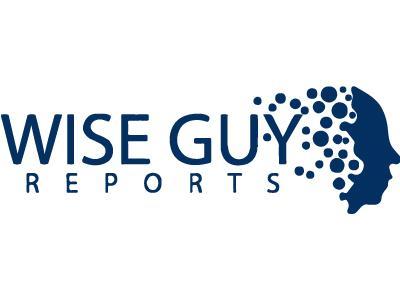Hydrogen Car Market Size, Industry Growth | 2035

The global automotive industry is at a pivotal juncture, navigating a monumental shift towards zero-emission mobility, and while battery electric vehicles have captured the spotlight, a dedicated and powerful contingent of Hydrogen CAR Market Companies is pioneering an alternative and complementary path. This ecosystem is comprised of a select group of forward-thinking automakers, industrial gas and energy giants, and specialized fuel cell technology firms, all collaborating to build the foundation for a hydrogen-powered future. These companies are tackling the immense challenges of technology development, infrastructure rollout, and consumer education to bring fuel cell electric vehicles (FCEVs) into the mainstream. The significant long-term potential of this sector, driven by advantages like rapid refueling and longer range, underpins the substantial investment and strategic commitment from these key players. The Hydrogen CAR Market size is projected to grow USD 70 Billion by 2035, exhibiting a CAGR of 33.4% during the forecast period 2025-2035. This projected growth is a testament to the belief that hydrogen will play a critical role, particularly in segments where battery limitations are most apparent, and the companies leading this charge are not just building cars; they are architecting a new energy and transportation paradigm.
At the forefront of the hydrogen car market are the automakers who have made long-term, multi-billion-dollar commitments to fuel cell technology. Toyota is the undisputed pioneer and leader, having launched the Mirai, the world's first mass-produced hydrogen FCEV. Toyota's strategy is deeply rooted in a belief in a diversified powertrain future, viewing hydrogen as the ultimate clean fuel, particularly for larger vehicles and long-distance travel. The company has invested heavily not only in vehicle development but also in promoting infrastructure and opening up its patents to accelerate adoption. Following closely is Hyundai Motor Group, which has established itself as a major force with its Nexo SUV, a critically acclaimed FCEV. Hyundai's vision extends far beyond passenger cars, with a comprehensive "Hydrogen Wave" strategy that encompasses trucks, buses, and even power generation, positioning the company as a true end-to-end hydrogen economy leader. Honda has also been a long-time player in the space, from its early FCX Clarity models to its more recent collaborations, demonstrating a persistent, albeit more cautious, commitment to the technology. Other automakers, like BMW, are exploring the technology, often through partnerships, with a focus on integrating fuel cells into larger, premium vehicles where the benefits of rapid refueling are most pronounced. These OEMs are the crucial face of the market, responsible for creating the desirable products that will ultimately drive consumer adoption.
Beyond the vehicle manufacturers, a second, equally critical tier of companies forms the essential backbone of the hydrogen ecosystem. This group is led by the industrial gas and energy giants responsible for producing and distributing hydrogen and building the refueling infrastructure. Companies like Air Liquide, Linde, and energy majors such as Shell are making strategic investments in building networks of hydrogen refueling stations in key markets like California, Germany, and Japan. Their participation is non-negotiable; without a convenient and reliable refueling network, hydrogen cars remain a niche curiosity. These companies are also at the center of the debate around "green" hydrogen (produced from renewable energy) versus "blue" or "grey" hydrogen (produced from natural gas), a critical factor for the technology's long-term sustainability credentials. Another vital segment is composed of the fuel cell stack manufacturers, such as Ballard Power Systems and Plug Power. While their primary focus has often been on heavy-duty applications like buses and forklifts, their technology and expertise are foundational to the entire industry, and they often partner with automakers or supply key components, driving innovation in fuel cell efficiency, durability, and cost reduction. The intricate collaboration between these automakers, energy providers, and technology specialists is what will ultimately determine the pace and success of the hydrogen car market's expansion.
About US:
Wise Guy Reports is pleased to introduce itself as a leading provider of insightful market research solutions that adapt to the ever-changing demands of businesses around the globe. By offering comprehensive market intelligence, our company enables corporate organizations to make informed choices, drive growth, and stay ahead in competitive markets.
We have a team of experts who blend industry knowledge and cutting-edge research methodologies to provide excellent insights across various sectors. Whether exploring new market opportunities, appraising consumer behavior, or evaluating competitive landscapes, we offer bespoke research solutions for your specific objectives.
At Wise Guy Reports, accuracy, reliability, and timeliness are our main priorities when preparing our deliverables. We want our clients to have information that can be used to act upon their strategic initiatives. We, therefore, aim to be your trustworthy partner within dynamic business settings through excellence and innovation.
- Art
- Causes
- Crafts
- Dance
- Drinks
- Film
- Fitness
- Food
- Jogos
- Gardening
- Health
- Início
- Literature
- Music
- Networking
- Outro
- Party
- Religion
- Shopping
- Sports
- Theater
- Wellness
